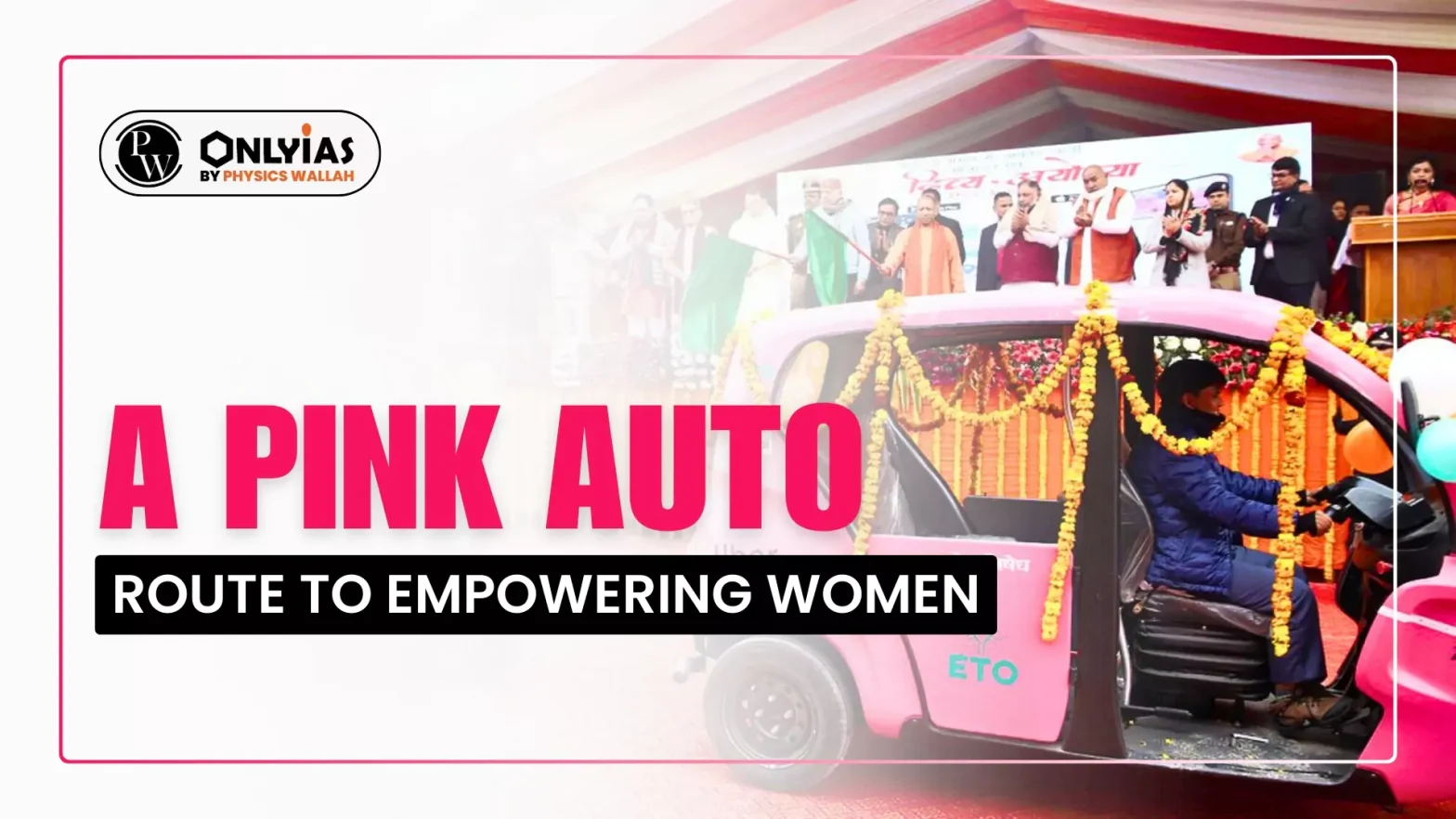The recent elections saw how much the women vote mattered to all parties, especially the ruling Bharatiya Janata Party which had unleashed over the past years a slew of welfare benefits for them.
Pink Auto Route To Empowering Women
Now, it needs to move a step ahead and actively increase the proportion of women in the workforce and enable them to be economically empowered and not just the beneficiaries of government largesse.
Enroll now for UPSC Online Classes
- India has rightly engaged with the promotion of renewables of which electric vehicles (EVs) are a crucial component.
- This is an area which could benefit both the environment and women’s empowerment – India needs to push up the share of women as the mobility service providers which at the moment is just a dismal 0.01%.
- They lack vocational training and lack of ownership of vehicles, both of which have hampered their entry into this sector.
- Of the 28 states which have electric vehicle (EV) policies, only three – Kerala, Tamil Nadu, and Delhi – have initiatives specifically targeting women, and only Delhi has made provisions to include women as drivers, according to information from the ministry of power.
- The launch of 200 pink e-autos with a 90% subsidy in Amritsar was a significant step toward gender-responsive three-wheeler (3W) fleet electrification in India.
- The project is an initiative driven in part by the USAID-supported Cleaner Air and Better Health (CABH) project which played a key role in addressing the gender disparity in the existing scheme.
- The original Rejuvenation of Autorickshaws in Amritsar through Holistic Intervention (Raahi) scheme focused on converting diesel autos to electric, but excluded women.
- The CABH project team engaged in discussions with women interested in driving e-autos which led to a memo recommending changes which, in turn, led to the ministry of housing and urban affairs approving pink autos with a more inclusive approach.
- The Council on Energy, Environment and Water (CEEW) facilitated the formation of four self-help groups (SHGs) comprising 38 women aiming to drive e-autos.
- An implementation plan was developed to identify, train, and retain women drivers, emphasising capacity building and community support.
- Till now 30 women have received pink autos and several applications are pending.
- It has been a life-changing experience for the women involved. Amritsar’s first female auto-driver, Sarabhjit Singh, a 38-year-old mother of three children, had to find a way to supplement her monthly income because her husband, who is a diesel auto driver, met with an accident in 2016.
- Earning just ₹6,500 every month as an embroiderer at a clothing factory was not enough to support her family and in-laws.
- She learned to drive at night for a week and began driving her husband’s auto.
- She faced hostility and resistance from people in her community and other male auto drivers, But, she persisted with the support of her family and today, she is a role model for other women.
- With support from CEEW as part of the CABH project, she had the opportunity to acquire a pink e-auto under the Raahi scheme.
- She is also the president of the first SHG formed in Amritsar under the National Urban Livelihood Mission (NULM) for driving and eauto. She says, “I have been waiting for a pink auto for 1.5 years.
- Finally, now that it is in hand and accessible to women, we can stand on our own feet, be independent and provide a quality education for our children”.
- Raj, another auto driver in Amritsar, the sole breadwinner for her family, procured the pink auto under Raahi.
- She still faces resistance from male drivers, but she says, “Now at the end of the day, after driving my pink-auto for just a couple of hours I earn around ₹600, which is significantly more than what I was earning as a house help.
- Abh khushi ka koi thikana nahin raha (my happiness knows no bounds now)”.
- This initiative could be replicated across India.
- It will tick several boxes, empowerment of women, getting more women into the labour force, providing a safe mobility option, especially for women, contributing to a cleaner environment and breaking gender stereotypes about what work a woman can or cannot do.
- You really cannot go wrong with that, can you?
Check Out UPSC NCERT Textbooks From PW Store
Conclusion
The Pink Auto initiative in Amritsar empowers women, boosts workforce participation, ensures safer mobility, and promotes a cleaner environment, setting a replicable model for India.
![]() 24 Jun 2024
24 Jun 2024

